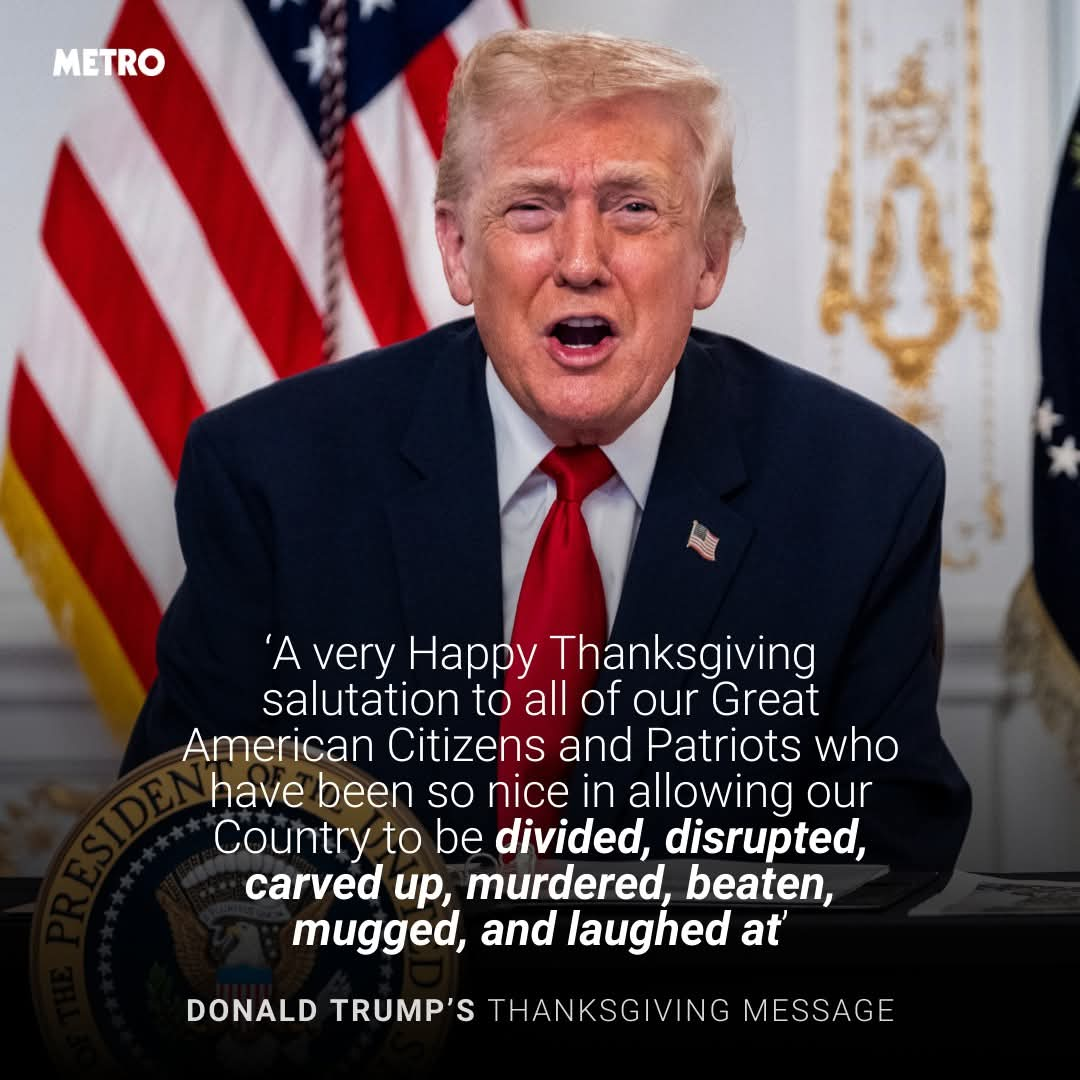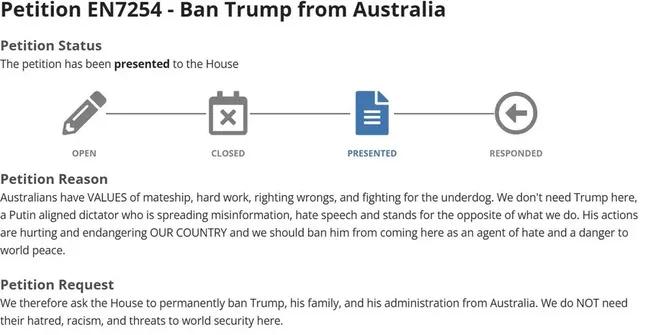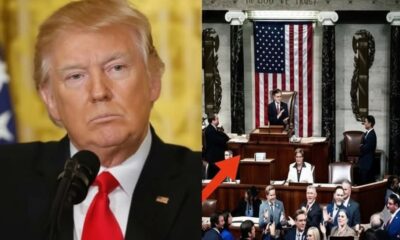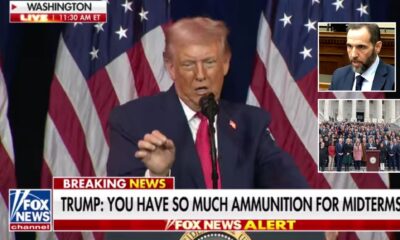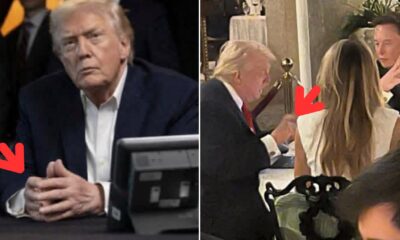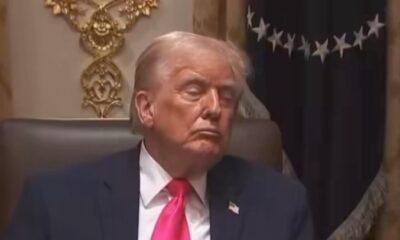NEWS
BREAKING: President Trump’s Critical Six-Word Response After Australia Moves to Become the First Western Nation to Permanently Ban Him, His Family, and His Former Administration — Sparking Other Countries to Consider Following
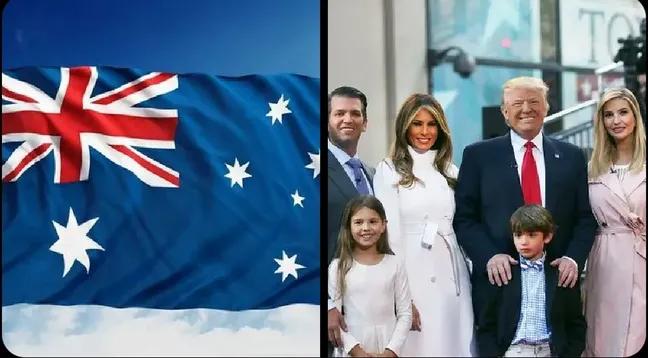
Under a gray morning sky and a rumble of global tension online, the political world froze as Australia’s parliament advanced a proposal unlike anything seen in modern Western politics: a permanent ban on former President Donald Trump, his family members, and select figures from his previous administration. Within minutes, reporters were scrambling, foreign ministries were whispering behind closed doors, and social media was already on fire with speculation. But the real shock didn’t arrive until Trump himself surfaced with a terse, icy, six-word response that instantly ricocheted across the world and deepened the unfolding suspense.
The Australian proposal, drafted quietly and kept under tight wraps for weeks, was said to be rooted in concerns about political unrest, foreign interference, and “risk factors” tied to what officials described as “high-impact political actors.” But the specific naming of Trump and those closest to him sent a wave of disbelief through diplomatic circles. Even seasoned analysts said they could not recall a time when a Western nation considered such a sweeping exclusion against a former U.S. president. As soon as the news broke, cameras flashed, statements poured in, and crowds of journalists pressed against the gates of government offices from Canberra to Washington, all searching for any signal of how this decision might echo across the world.
Every minute that passed built more tension. In the United States, pundits speculated whether this was merely a symbolic move or the start of a larger international shift. In Europe, officials watched cautiously, some quietly admitting that the idea had been circulating in private policy discussions for months. And in several parts of Asia, analysts said Australia’s bold step could embolden other nations to adopt similar positions—not out of hostility, but out of a tightening global approach toward political instability and its perceived sources. As all this unfolded, Trump remained silent, an unusual pause that only added to the growing uncertainty.
Then, without warning, a single message appeared on his social platform: six words that hit like a hammer blow. No elaboration. No added context. No video or statement from advisers. Just six sharp, cold words that left both supporters and critics guessing about what would come next. Those words were enough to send reporters scrambling and push the political world into deeper suspense, because the message didn’t clarify his next move—it threatened it. Analysts began dissecting every syllable, arguing over whether the tone signaled defiance, strategy, retaliation, or something more unpredictable. The ambiguity was deliberate, and the timing was explosive.
Inside Australia, the impact was immediate. Lawmakers who supported the proposal doubled down, insisting that the measure was about long-term stability, not theatrics. Those who opposed it warned that the move could fracture alliances and cast Australia into a diplomatic storm with consequences that no one could fully calculate. Citizens, meanwhile, were caught in the middle—some expressing relief that the government was taking bold action, others fearing that Australia had just stepped into the center of an escalating geopolitical conflict.
But the real tension grew outside Australia, where other countries watched with sharpened interest. Whispered conversations in foreign ministries hinted that this ban could become a domino. A senior European diplomat reportedly told colleagues that “once one nation takes the first leap, others no longer feel bound by precedent.” And within hours, online forums in three different countries began trending with discussions about whether similar restrictions should be considered. None of these nations had made public statements, but analysts warned that silence didn’t mean disinterest—it often meant preparation.
Through all of this, Trump’s six-word message hung over the situation like a storm cloud. Supporters interpreted it as a rallying cry, believing that the former president was preparing to mount a fierce counter-narrative. Critics believed it signaled an unspoken threat that could influence international politics in unpredictable ways. Even nations normally neutral in U.S. political drama began monitoring the situation closely, worried that whatever came next could alter diplomatic relationships or trigger unexpected shifts in global alliances.
As the hours passed, a strange, electric anticipation settled over the international community. Australia’s move had not only challenged a political figure—it had challenged a global norm. Trump’s cryptic response had not only fueled debate—it had opened a door to uncertainty that no one could fully close. And somewhere between those two forces, the world found itself waiting, watching, and bracing for the next development. Whether other countries will follow Australia’s step remains unknown, but the motivation is spreading, the pressure is rising, and the suspense is far from over.

